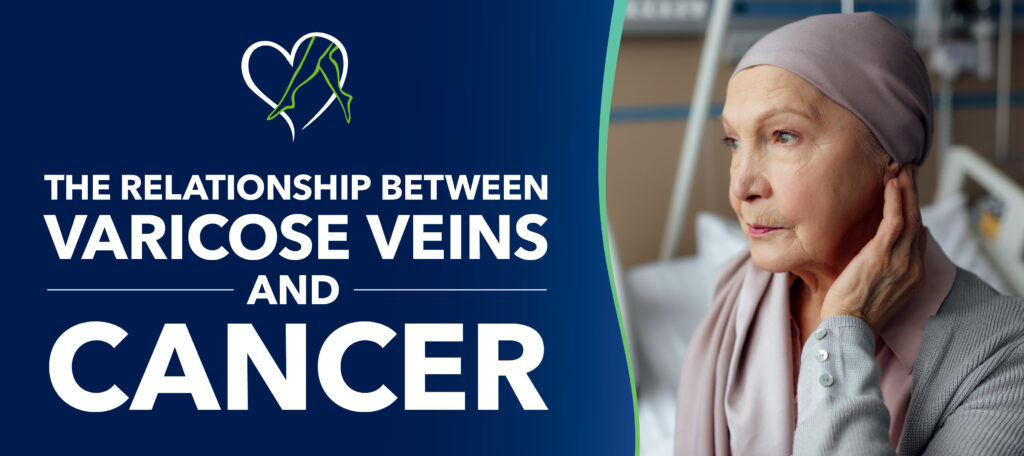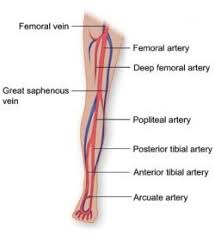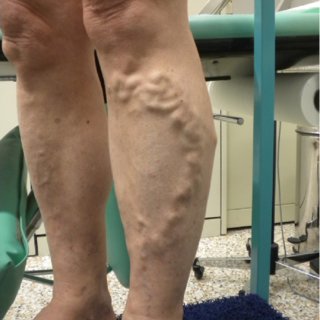Do Symptoms of Varicose Veins Correlate with Cancer Cells?
Varicose veins, characterized by twisted, enlarged veins, are a common condition affecting many people worldwide. They primarily occur in the legs and can lead to discomfort, pain, and a range of cosmetic concerns. On the other hand, cancer represents an entirely different medical issue, where cells grow uncontrollably, potentially leading to life-threatening conditions. At first glance, varicose veins and cancer may seem unrelated, but a closer look at the underlying mechanisms of both conditions reveals some surprising connections.Do Symptoms of Varicose Veins Correlate with Cancer Cells.
In this article, we’ll explore whether the symptoms of varicose veins correlate with cancer cells. We will examine the potential risk factors, medical evidence, and insights that may connect these two seemingly different health issues.

Understanding Varicose Veins
Varicose veins occur when the veins, typically in the legs, become enlarged and overfilled with blood. The veins’ valves, responsible for regulating blood flow back to the heart, fail to function properly, causing blood to pool in the veins. This leads to swelling, discoloration, and the characteristic twisted, bulging appearance.
Symptoms of Varicose Veins
The common symptoms of varicose veins include:
- Swollen, twisted veins visible just beneath the skin
- A heavy or achy feeling in the legs
- Itching around the veins
- Throbbing, burning, or cramping sensations in the legs
- Skin discoloration or ulcers near the veins, in severe cases
Varicose veins are typically a result of prolonged standing, pregnancy, obesity, or genetic predisposition. While not life-threatening on their own, they can lead to complications such as venous insufficiency or thrombophlebitis, a condition involving blood clots.

Understanding Cancer Cells
Cancer cells develop when normal cells mutate and begin dividing uncontrollably. These abnormal cells can invade nearby tissues and spread to other parts of the body, a process known as metastasis. Different types of cancer behave differently, depending on their location and the type of cells they originate from.
Common Symptoms of Cancer
Symptoms of cancer vary widely, depending on the type of cancer and the part of the body affected. Some general signs may include:
- Unexplained weight loss
- Fatigue
- Persistent pain
- Changes in skin or appearance (e.g., jaundice, darkening of the skin)
- New lumps or growths
- Unexplained bleeding
Is There a Connection Between Varicose Veins and Cancer Cells?
At first glance, the symptoms of varicose veins and cancer may not appear to have much in common. However, recent medical research has started to investigate potential correlations between vascular issues, such as varicose veins, and cancer.
1. Blood Clots and Cancer Risk
One of the primary areas where varicose veins and cancer intersect is through blood clot formation. Varicose veins are associated with an increased risk of deep vein thrombosis (DVT), a condition where blood clots form in the deep veins, often in the legs.
Cancer, particularly in advanced stages, also significantly raises the risk of developing blood clots. This is because cancer cells can activate the body’s clotting mechanisms, leading to an increased likelihood of clot formation. In fact, blood clots can sometimes be the first sign of an underlying malignancy, particularly in cases where the clot appears in an unusual location or without a clear cause.
This connection suggests that individuals with varicose veins, who are already at higher risk for blood clots, may have a slightly elevated risk of developing cancer-related clotting disorders. However, it’s essential to note that varicose veins themselves are not a direct cause of cancer.
2. Chronic Inflammation and Cancer
Chronic inflammation is a known risk factor for various types of cancer. Varicose veins, particularly in their advanced stages, can lead to chronic inflammation in the affected areas. Prolonged swelling, poor blood circulation, and tissue damage can result in a localized inflammatory response in the legs.
Although the link between chronic inflammation and cancer is well-established, particularly in conditions like inflammatory bowel disease or chronic hepatitis, there is limited direct evidence linking varicose vein-related inflammation with cancer. However, the presence of chronic inflammation may exacerbate the risk factors for cancer development in susceptible individuals.
3. Hormonal Factors and Varicose Veins in Cancer Patients
Some cancers, particularly breast and ovarian cancers, are influenced by hormonal factors. Estrogen, for example, plays a significant role in both the development of certain cancers and the formation of varicose veins, particularly in women. Pregnancy, hormone replacement therapy, and contraceptives can contribute to both venous problems and cancer risk due to estrogen’s effects on blood vessel health and cell growth.
In this context, hormonal imbalances may contribute to both the development of varicose veins and an increased risk of cancer, particularly hormone-sensitive cancers. However, while these hormonal factors may create an overlap in risk, there is no direct evidence suggesting that varicose veins themselves lead to cancer.
4. Venous Insufficiency and Tumor Growth
Venous insufficiency, a condition often associated with varicose veins, refers to the inability of veins to efficiently pump blood back to the heart. Some studies suggest that this circulatory impairment could contribute to the growth of tumors, as poor circulation may limit the body’s ability to deliver oxygen and nutrients to tissues while also hindering the removal of waste products.
Though the relationship between venous insufficiency and cancer remains largely theoretical, impaired circulation and oxygenation are factors in tumor growth and progression. Therefore, it is possible that in individuals with severe venous insufficiency, these conditions could contribute to a more favorable environment for cancerous cells to thrive.
5. Varicose Veins as a Secondary Symptom in Cancer Patients
In some cases, varicose veins may develop as a secondary symptom in cancer patients, particularly in those with abdominal tumors. Tumors in the abdomen, such as those found in the liver, kidneys, or pelvis, can press on the veins and impede blood flow. This increased pressure can lead to the formation of varicose veins, particularly in the legs. In such cases, the varicose veins are not the cause of cancer but rather a consequence of the tumor’s presence.

Conclusion: Are Varicose Veins and Cancer Cells Directly Linked?
While there are certain overlapping risk factors and medical conditions that may connect varicose veins and cancer, the symptoms of varicose veins do not directly correlate with cancer cells. However, individuals with varicose veins may be at an increased risk of developing conditions that are also associated with cancer, such as blood clots and chronic inflammation.
The presence of varicose veins should not be seen as a sign of cancer, but it is essential to monitor any unusual symptoms, especially those related to blood clotting or persistent inflammation. If varicose veins are accompanied by other concerning symptoms, such as unexplained weight loss or fatigue, further medical evaluation may be necessary to rule out underlying malignancies.
In conclusion, while varicose veins and cancer can co-exist in certain individuals, they are generally separate medical issues with distinct causes and symptoms. Maintaining overall health through regular medical check-ups, managing risk factors, and addressing any chronic conditions can help reduce the risk of both varicose veins and cancer.
FAQs
- Can varicose veins lead to cancer? Varicose veins do not cause cancer. However, they are associated with conditions like blood clots, which can be linked to cancer in certain cases.
- Are blood clots from varicose veins a sign of cancer? Not necessarily, but unexpected or unusual blood clots may require further investigation to rule out cancer.
- Is there a connection between chronic inflammation in varicose veins and cancer? Chronic inflammation is a risk factor for cancer, but direct evidence linking varicose vein-related inflammation to cancer is limited.
- Can hormone-related cancers increase the risk of varicose veins? Yes, hormonal factors such as estrogen can influence both the development of varicose veins and certain cancers, particularly in women.
- What should I do if I have varicose veins and am concerned about cancer? Consult your healthcare provider, especially if you experience unusual symptoms like unexplained weight loss or persistent pain.
- Can tumors cause varicose veins? In some cases, abdominal tumors may press on veins, leading to the formation of varicose veins in the legs. A perfect Solution Of Varicose Veins Click Here



